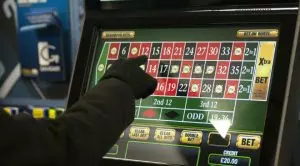 Today, a Government report is expected to be rolled out in order to make a proposal for the establishment of a new gambling regulator which would be empowered to regulate and grant licenses to thousands of gaming machines.
Today, a Government report is expected to be rolled out in order to make a proposal for the establishment of a new gambling regulator which would be empowered to regulate and grant licenses to thousands of gaming machines.
The Irish Government is set to approve the proposal for the gambling regulatory body establishment.
Apart from that, a new social fund, which is to be funded by levies paid by licensed gambling companies in the country, is also set to be introduced to support various programs aimed at research, raising-awareness campaigns and treatment of people who suffer the negative effects of gambling.
David Stanton, the Department of Justice’s Minister of State, is expected to publish a report prepared by a special working group on the gambling sector’s regulation. The report is expected to make recommendations about the establishment of the new gambling regulator, which will also have the power to develop and enforce the necessary licensing and regulatory measures on the country’s gambling sector, including on online gambling.
According to information provided by sources with information of the matter, the report is expected to be used as a design for future laws and changes brought to the sector.
The Government is also expected to give the nod to the publication of the new Gaming and Lotteries (Amendment) Bill of 2019.
New Gambling Regulator May Assume Licensing Responsibilities
 Rumour has it that the above-mentioned Bill includes a proposal of a series of interim reforms in Ireland’s gambling sector before a new gambling regulatory body is officially established. Sources close to the matter have revealed that the Bill is set to bring clarity to the permit and licensing approach to local gaming and lottery activity. As revealed by people with knowledge of the matter, the proposed piece of legislation would seek to update some betting stakes and prize limits, as well as to set the standard minimum age for gambling at 18.
Rumour has it that the above-mentioned Bill includes a proposal of a series of interim reforms in Ireland’s gambling sector before a new gambling regulatory body is officially established. Sources close to the matter have revealed that the Bill is set to bring clarity to the permit and licensing approach to local gaming and lottery activity. As revealed by people with knowledge of the matter, the proposed piece of legislation would seek to update some betting stakes and prize limits, as well as to set the standard minimum age for gambling at 18.
The Bill, however, does not propose any changes to be made to the provisions of the existing law. This basically means that the Irish Government plays no part and has no responsibilities related to the gaming machines’ licensing or regulation. These activities have been left to the Revenue Commissioners, local authorities and district courts.
According to data provided by Ireland’s Revenue Commissioners, 32 operating licences were given on a daily basis through 2018 for the controversial gambling machines, despite anti-gambling campaigners concern with the constantly rising risks of problem gambling.
Moreover, the Bill may contain interim measure which basically does not aim at changing the existing arrangements with the Revenue Commissioners and district courts but sources close to the matter revealed that the expected report is to recommend that the new regulatory body should be empowered with the responsibilities which local councils currently have.
- Author


